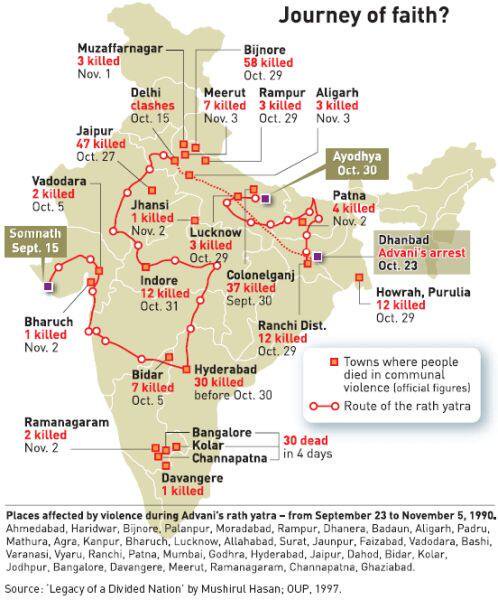(Image from deseret-dot-com.)
THREAD: Numbers and Multiple Sources in Scripture.
Consider Judges 20’s battle narrative:
400,000 gathered Israelites,
700 Gibeahites defended by 26,000 Benjaminites,
22,000 Israelite casualties,
25,000 Benjaminite casualties, etc., etc.
Why all the numbers, Samuel?

@DrPJWilliams has a thread on it (linked below), which is bigly recommended.
https://t.co/WY7wl60Beh
THREAD: The Bible\u2019s most gory story
— Peter J. Williams (@DrPJWilliams) August 19, 2019
It\u2019s the disturbing account of the rape & dissection of the Levite\u2019s concubine (Judges 19-21)
With lessons about male violence against women #vawg
and instead lays the blame for her death squarely at the feet of the men of Gibeah.
To our surprise, however, the Israelites don’t fare very well.
Only in the third day’s battle do the Israelites finally gain the upper hand.
Why? Isn’t their war against Benjamin a just one—one they can reasonably expect God to bless?
400,000 gathered Israelites,
700 Gibeahites defended by 26,000 Benjaminites,
22,000 Israelite casualties on the first day’s battle,
a further 18,000 the next day,
broken down into groups of (roughly) 18k, 5k, and 2k (with 600 left over):
What are we to make of all these numbers?
the numbers involved in ch. 20’s battle-scenes (together with a few other details) help us to understand why the Israelites don’t fare very well against the Benjaminites.
The Benjaminites slay 40,000 out of the Israelites’ 400,000 men (20.17–26), which is a significant proportion.
Something seems amiss in terms of ch. 19’s Levite and his effect on Israel.
Other connections also tie the battles at Gibeah and Ai together.
And, here in Judges 20, the Israelites return to the same place in the same circumstances.
It seems so, as we’ll now see.
who I’ll refer to as ‘standard soldiers’,
and 700 ‘select warriors’ (איש בחור) from Gibeah,
who I’ll refer to as ‘elite soldiers’ (20.15).
which leaves 900 standard soldiers unaccounted for.
What’s happened to these 900 men?
Instead, in 20.36–48, our author provides us with a second account of the same incident (or, more precisely, a zoom-in on the third day of 20.26–35’s narrative).
When the Benjaminites go forth to battle, the Israelites slay 18,000 of their standard soldiers;
as the Benjaminites flee, the Israelites slay a further 5,000 ‘in the highways’;
These details raise further questions.
Why are 25,100 men slain in the first account but only 25,000 in the second?
What has happened to the other 1,100?
We thus have a number of issues to address, which we’ll tackle in reverse order.
The 1,100 Benjaminites most likely fell on the first and second days of battle.
and the Benjaminites are unlikely to have incurred zero losses on the first two days.
while the other 200 must have been elite soldiers.
The presence of unaccounted-for Benjaminites in our accounts isn’t, therefore, too hard to explain.
The easiest way to explain the difference between the figures of 25,100 and 25,000 is to assume they involve different methods of approximation.
18,020 on the battlefield, 5,020 on the highways, and 2,020 at Gidom.
while, rounded to the nearest hundred and then totalled up, they would yield 25,000 (given subtotals of 18,000, 5,000 and 2,000).
(Other explanat/s are possible, but more complex.)
Couldn’t our author have told chs. 19–20’s story without them?
He *could*, yes. But an important point would then have gone unnoticed.
We have two different death tolls, which don’t (neatly) cohere with one another because their details are approximations.
We have an account of a battle which leaves 900 individuals unaccounted for.
Do any of these details ring a bell?
They should do, since they find a clear parallel in our text and its wider context.
At the start of the book’s epilogue, we have a story about 1,100 lost shekels, whose disappearance isn’t explained.
Both narratives are thus inherently incomplete.
My suggestion is as follows.
Our author wants us to appreciate the hugely problematic nature both of the Levite’s testimony and of the Israelites’ failure to question it.
If the men of Gibeah genuinely wanted to kill him (per his claim), then why *didn’t* they kill him (20.5)?
Why would they have been satisfied with an act of rape?
The Levite’s story was fundamentally incoherent and should have been questioned by the Israelites.
which is precisely what the Israelites should have done in the case of the Levite’s testimony (Deut. 19.15).
Where was the old man from Gibeah?
In other words, where were the ‘two or three witnesses’ necessary to indict the Gibeahites?
The Levite failed to mention his horrific act of betrayal, and was deliberately vague about the issue of when his concubine died.
Or did she only die later when he failed to attend to her injuries?
For more thoughts on the latter question, see another of @DrPJWilliams’ threads below:
https://t.co/wCQRDRj624
The Bible\u2019s most gory story is probably even more gory than I realised.
— Peter J. Williams (@DrPJWilliams) June 16, 2020
The chilling account of the rape & dissection of the Levite\u2019s concubine (Judges 19) contains at its heart an ambiguity: https://t.co/IFQ3hMYN4J
For a start, the Israelites wouldn’t have been able to lay the blame for the concubines’ death solely at the men of Gibeah’s feet.
The Benjaminites might not have felt the need to come to the defence of the Gibeahites;
thousands of warriors’ lives might have spared on the battlefield;
and hundreds of women might have been spared from abuse in Shiloh’s vineyards (21.19–23).
The Israelites had another Achan in their midst (the Levite), which they should have realised,
especially when the battle inexplicably turned against them.
And these are the kinds of issues our author wants *us* to consider.
all of which is carefully brought out by our author’s use of numbers.
More from World

I'll do a thread of countries outside Nigeria where you younglings + all of you "young at heart" making smart internet money can get Permanent and Temporary residencies, allowing multiple entries and exits.
— Ikenna Ronald Nzimora (@ronaldnzimora) February 18, 2021
As always the idea is for you guys to have a PLAN B.
Tonight. 8 PM.
So today, I am going to quickly talk about 4 or 5 countries where you can get residence visas.
Why residence visas?
For starters, they are cheaper, FAR CHEAPER than passports, and offer almost all the benefits, not not, but a large swathe of them.
Second, residencies can be...
a pathway to citizenship.
In one or two of the countries I will talk about tonight, if you renew your residencies long enough, and fulfill all requirements, according to their law, which differs from country to country, you become eligible to apply for full citizenship.
So...
you can see why they are good enough?
Cool. Alright, let's begin.
The first country is
1. Barbados
Yes, @Rihanna's country.
The first thing I love about it is it's fully black, majority descendants of ex-slaves of Igbo extraction.
That's why they refer to their country...
Barbados last year officially launched its 12-month Barbados Welcome Stamp, a new visa that allows remote workers to live and work from the Caribbean country for up to a year.
Applicants must electronically submit documents, such as a copy of their international passport and...
You May Also Like
Who are these chuds?
Patriot Front broke away from white nationalist org Vanguard America following #unitetheright in #charlottesville after James Alex Fields was seen with a VA shield before driving his car into a crowd, murdering Heather Heyer & injuring dozens of others
Syed Robbie Javid a.k.a. Sayed Robbie Javid or Robbie Javid of Alexandria,
Happy Monday everyone :-) Let's ring in September by reacquainting ourselves with Virginia neo-Nazi and NSC Dixie affiliate Sayed "Robbie" Javid, now known by "Reform the States". Robbie is an explicitly genocidal neo-Nazi, so lets get to know him a bit better!
— Garfield but Anti-Fascist (@AntifaGarfield) August 31, 2020
CW on this thread pic.twitter.com/3gzxrIo9HD
Antoine Bernard Renard (a.k.a. “Charlemagne MD” on Discord) from Rockville, MD.
https://t.co/ykEjdZFDi6

Brandon Troy Higgs, 25, from Reisterstown,






















